Choosing the right fish for grilling can make or break your culinary experience. Some fish are perfect for the grill, with firm textures and flavors that shine when seared over high heat. However, others can fall apart easily or have flavors that might not appeal to everyone. In this guide, we’ll explore 8 great picks for grilling and 8 showstoppers that are best avoided. Whether you’re a seasoned griller or a beginner, understanding which fish to choose will enhance your cooking and dining experience.
Salmon
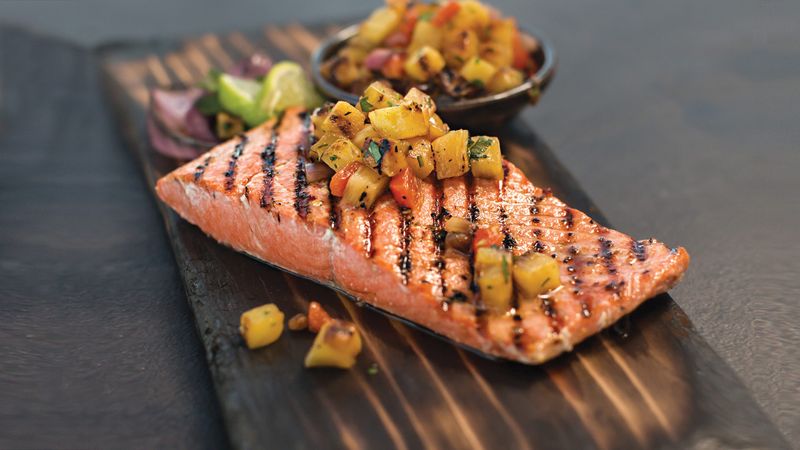
Salmon’s rich, buttery flavor and firm texture make it ideal for grilling. It holds up well over high heat, absorbing smoky flavors beautifully. Whether you opt for wild-caught or farm-raised, salmon’s versatility is unmatched. Grill it simply with salt and pepper or add a marinade for more depth. Its vibrant color and succulent taste make it a favorite for gatherings. However, keep an eye on the cooking time to avoid overcooking. Salmon is not only delicious but also packed with omega-3 fatty acids, making it a healthy choice for your grill.
Swordfish

Swordfish is known for its meaty texture and mild flavor, making it a top choice for grilling. Its steak-like consistency allows it to withstand high temperatures without falling apart. Often described as the “chicken of the sea,” swordfish is versatile in flavor, pairing well with citrus, herbs, and spicy marinades. Be mindful of its cooking time, as it can dry out if overcooked. Swordfish’s robust flavor and satisfying bite make it an excellent option for those looking to add a hearty fish to their grilling repertoire.
Mahi-Mahi
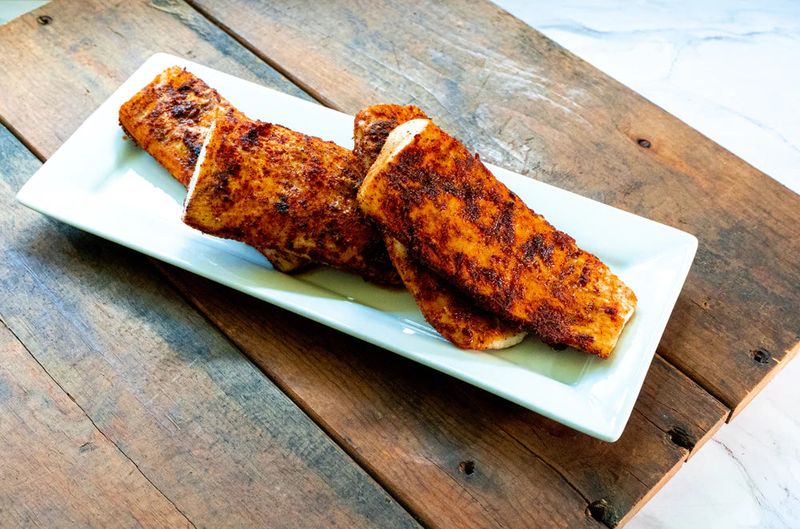
Mahi-mahi, often associated with tropical waters, offers a sweet, mild flavor and firm texture perfect for grilling. Its lean flesh cooks quickly, allowing it to absorb marinades and spices efficiently. The fish’s subtle taste makes it an ideal canvas for creative culinary experiments, whether you prefer a spicy kick or a hint of citrus. Mahi-mahi is not only delicious but also visually appealing, with its light pink flesh turning white when cooked. This makes it a great choice for vibrant, colorful dishes that are sure to impress your guests.
Tuna
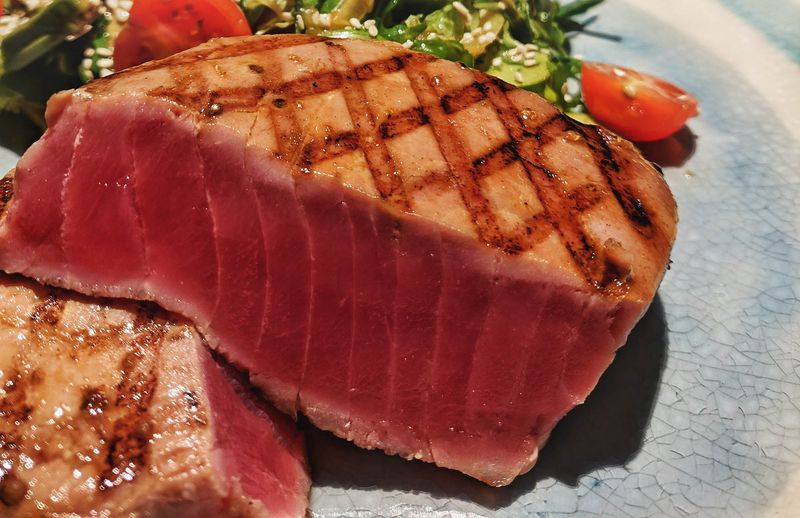
Tuna’s hearty texture and rich flavor make it a standout choice for grilling. Known for its steak-like quality, tuna can be cooked to various degrees of doneness, though many prefer it seared on the outside with a rare center. The fish’s bold taste pairs well with strong seasonings like soy sauce or wasabi. Tuna is not only a culinary delight but also a source of lean protein and essential nutrients. Its ability to hold up on the grill while delivering mouthwatering flavor makes tuna a top contender for any grilling occasion.
Snapper

Snapper, with its delicate flavor and firm, flaky flesh, is a favorite for grilling whole. Its skin crisps beautifully when cooked over an open flame, providing a delightful contrast to its tender interior. The mild taste of snapper allows for a variety of seasoning options, from simple salt and pepper to exotic spice blends. Grilling snapper whole ensures an impressive presentation, perfect for dinner parties or family gatherings. This fish not only offers a delightful eating experience but also brings a touch of elegance to any grill session.
Halibut
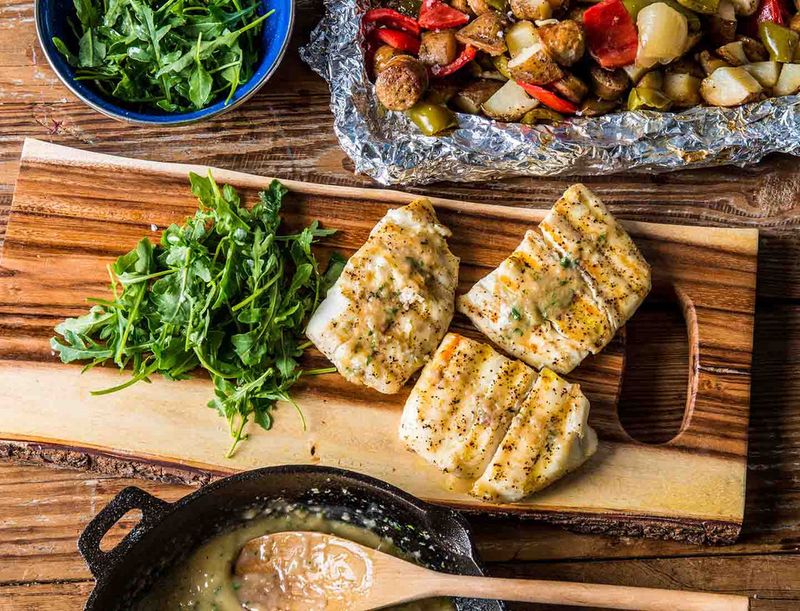
Halibut’s firm, white flesh and mild flavor make it a versatile choice for grilling. Its thickness ensures it holds together well, allowing for easy handling on the grill. The gentle taste of halibut pairs well with a variety of marinades and sauces, from citrus-based to creamy herb blends. This fish’s flaky texture makes it a crowd-pleaser, offering a satisfying bite without being overpowering. Its adaptability in flavor profiles and its ability to maintain moisture make halibut an excellent pick for those seeking a reliable grilling option.
Trout
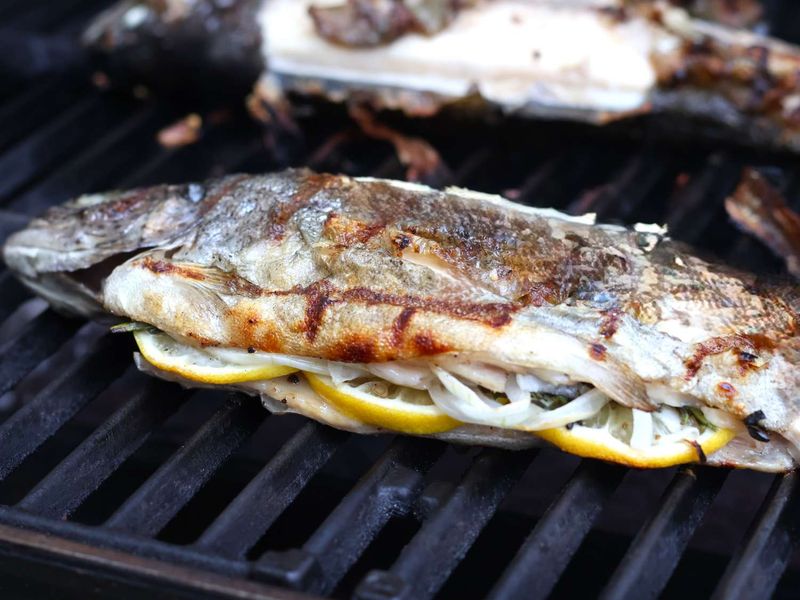
Trout, often found in freshwater streams, offers a delicate flavor and tender flesh that’s ideal for grilling. Cooking trout whole on the grill brings out its natural flavors, with the skin crisping up nicely. The fish’s mild taste benefits from simple seasonings like lemon, dill, and butter. Trout’s small size makes it quick to cook, perfect for those seeking a fast yet flavorful meal. The sight of a whole grilled trout, with its golden-brown exterior, is sure to impress guests and elevate any outdoor dining experience.
Catfish

Catfish, with its distinct flavor and firm texture, is a Southern favorite for the grill. Known for its ability to hold up under heat, catfish pairs well with bold seasonings like Cajun spices and barbecue sauce. Its hearty flesh makes it suitable for grilling without falling apart, providing a satisfying bite. The earthy taste of catfish is complemented by sweet and spicy accompaniments like corn or coleslaw. Grilling catfish adds a smoky dimension to its flavor, making it a delicious option for those seeking a robust fish dish.
Tilapia
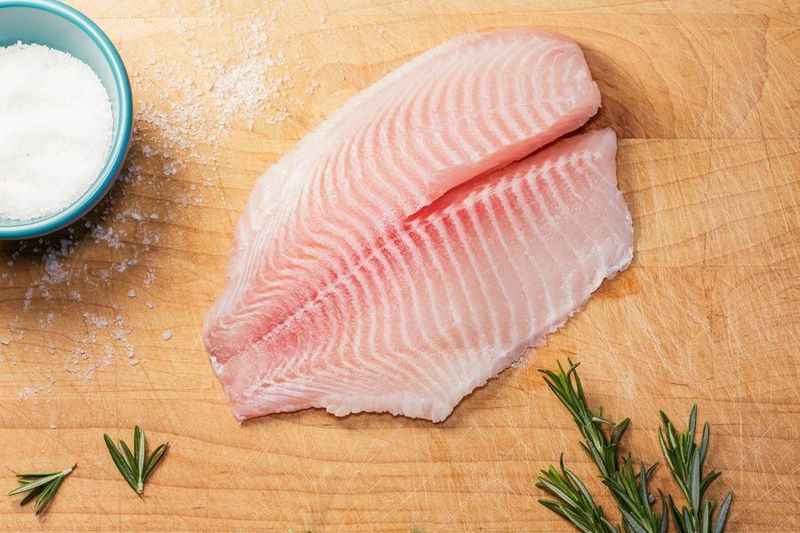
Tilapia is often praised for its mild flavor and affordability, but grilling isn’t its best cooking method. The delicate flesh tends to flake and break apart, making it difficult to handle on a grill. While tilapia can absorb marinades well, its subtle taste might get lost among stronger grill flavors. Opting for baking or sautéing allows tilapia to shine without the risk of overcooking. Though popular in various dishes, its texture isn’t suited for direct grilling, making it a showstopper rather than a star in this context.
Cod
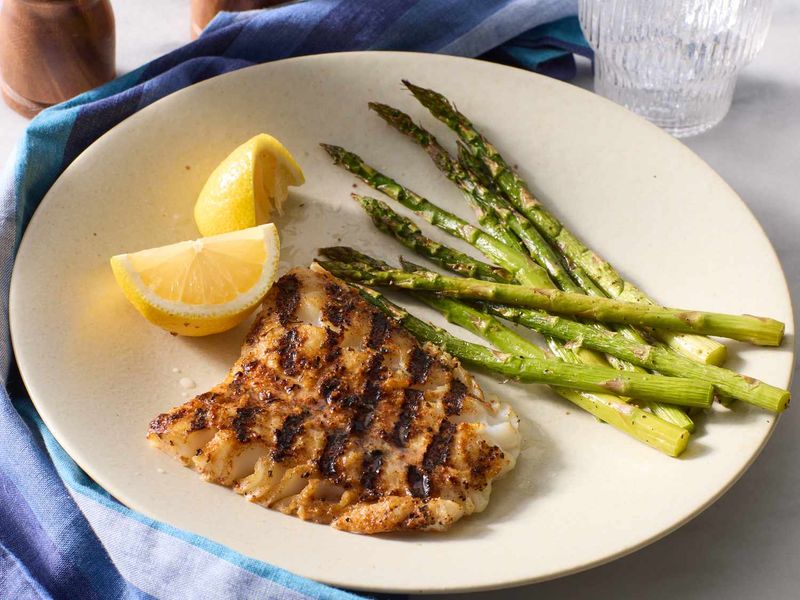
Cod is cherished for its mild, sweet flavor and flaky texture, but grilling presents challenges. The fish’s delicate flesh can easily fall through grill grates, leading to uneven cooking. Using a grill basket can help, yet cod’s best qualities often shine when baked or broiled. Its subtle taste might not stand up to the robust flavors imparted by grilling, leaving it overwhelmed. For those seeking to maintain cod’s integrity and delicate taste, alternative cooking methods are advisable, making it a less ideal choice for grilling enthusiasts.
Haddock
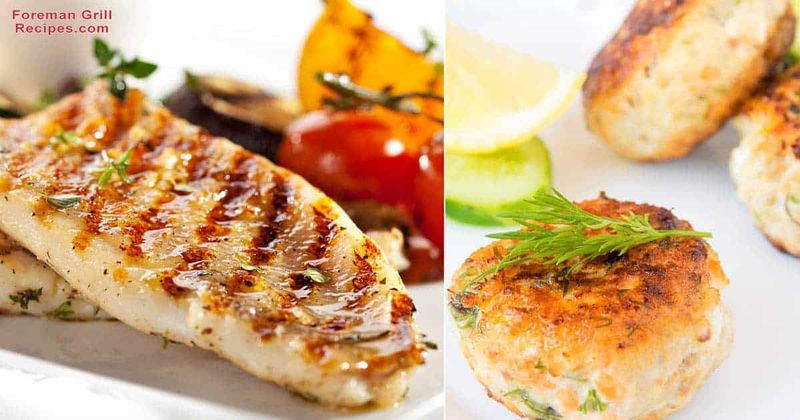
Haddock, recognized for its clean, slightly sweet taste, poses challenges on the grill. Its flaky texture, while delightful, tends to break apart, making grilling a cumbersome task. The fish’s subtle flavors are better suited for baking, allowing it to maintain moisture and prevent excessive charring. Grilling haddock may result in uneven cooking and a loss of its delicate essence. For those looking to preserve haddock’s tender quality and taste, oven cooking with breadcrumbs or sauces is recommended, making grilling less favorable.
Flounder
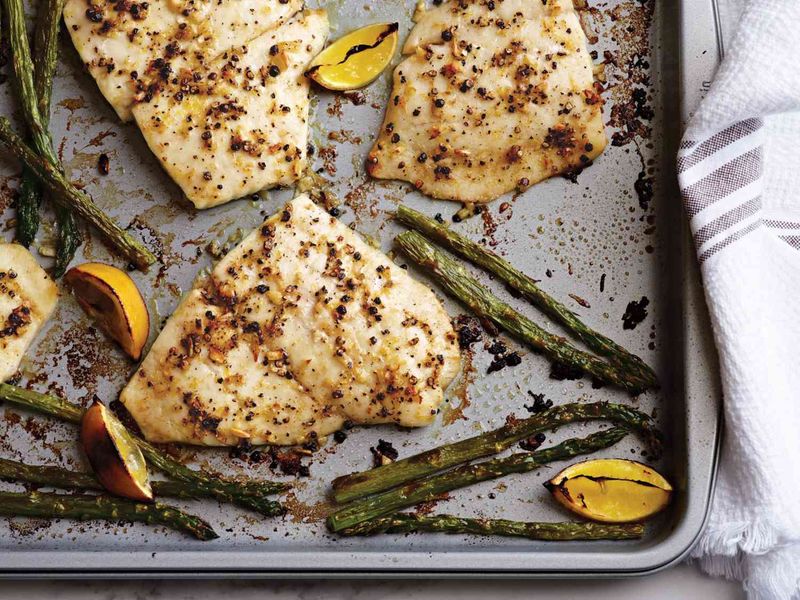
Flounder, with its delicate, sweet flavor and tender texture, isn’t the best candidate for grilling. The fish’s thin fillets can easily fall apart or overcook on an open flame. Baking flounder allows it to retain moisture and absorb subtle flavors from herbs and sauces. While some enjoy flounder for its lightness, grilling can overshadow its natural qualities. Those looking for a satisfying fish dish might consider other cooking methods that highlight its gentle taste, making it a showstopper for grill enthusiasts seeking robust textures.
Sole
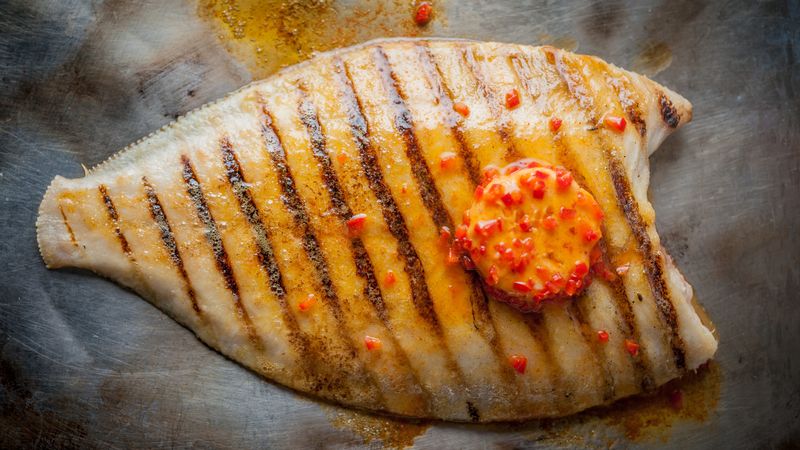
Sole, known for its delicate flavor and fine texture, is best avoided on the grill. The thinness of sole fillets makes them susceptible to drying out or falling through grill grates. Its subtle taste shines through pan-frying or steaming, where it can be enhanced without overpowering. While sole is cherished in culinary circles for its lightness, grilling may not do it justice. For those seeking to enjoy sole’s unique qualities, exploring gentle cooking methods ensures a delightful experience, making it less ideal for grill enthusiasts.
Pollock
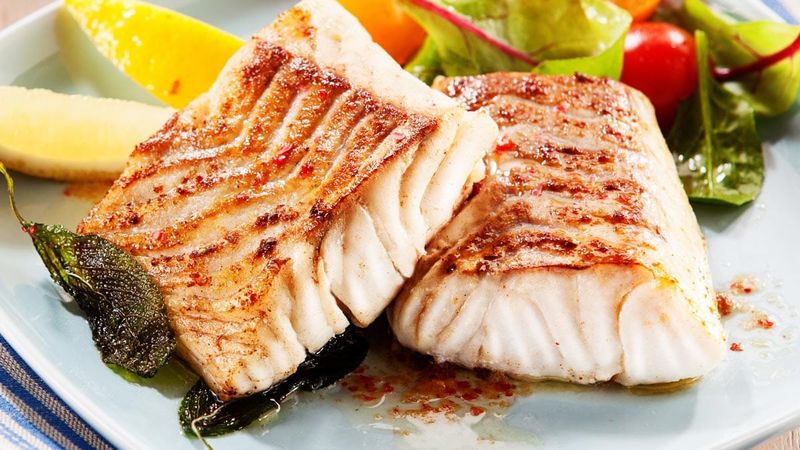
Pollock, often used in fish sticks and fast-food sandwiches, has a mild flavor and flaky texture that doesn’t lend itself to grilling. The fish’s delicate nature makes it prone to falling apart, especially over high heat. While pollock is a budget-friendly option, its best qualities shine through frying or baking. Grilling may lead to uneven cooking and a loss of its subtle taste. For those seeking a more robust grilling experience, other fish choices offer better texture and flavor retention, making pollock a showstopper in this context.
Hake
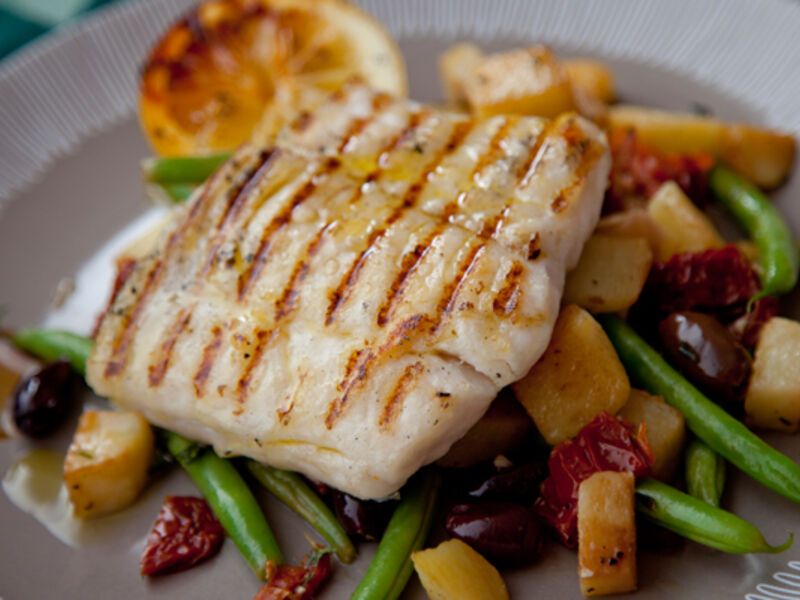
Hake, a cousin to cod, boasts a mild flavor and soft texture that poses challenges on the grill. Its flaky flesh is delicate, making it prone to disintegration under high heat. While hake is appreciated for its gentle taste, grilling can overshadow its subtle nuances. Baking or poaching allows hake to maintain its moisture and absorb complementary flavors. For those looking to enjoy hake’s delicate qualities, alternative cooking methods are recommended, making it an underwhelming choice for grill aficionados seeking robust, firm-textured fish.
Orange Roughy

Orange roughy, prized for its mild flavor and delicate texture, isn’t well-suited for grilling. The fish’s fine flesh can easily break apart or dry out under direct heat. Baking orange roughy allows it to maintain its moisture and absorb subtle flavors from herbs and butter. While its gentle taste is valued, grilling may mask its unique qualities. For those seeking a satisfying fish dish, opting for cooking methods that highlight orange roughy’s delicate essence is recommended, making it a less favorable choice for grill enthusiasts.
Leave a comment